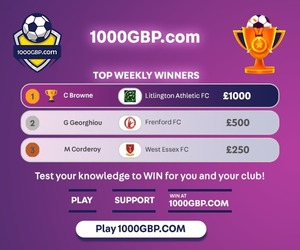Venture into the world of UK lotteries, where the thrill of winning big is as enticing as playing in low wagering casinos. This guide delves into the various lotteries available in the UK, comparing their odds and jackpot sizes to help you find the best chance to win. From the giant jackpots of Powerball and Mega Millions to the more favorable odds of EuroMillions and the UK Lottery, we weigh each game’s potential for payout. Discover the key to picking the lottery with the best odds, and find out how you can enhance your chances of taking home a life-changing prize, all while enjoying the excitement similar to that of low wagering casinos.
Odds of Winning
The odds of matching all numbers and winning the jackpot are the main consideration when judging best lottery odds. Powerball and Mega Millions offer tremendous top prizes but odds in the range of 1 in 300 million. State lottery draw games may quote odds from 1 in 2 million to 1 in 30 million. Scratch tickets print odds right on the ticket, from approximate ranges like 1 in 4 to 1 in a million. Comparing lottery odds gives an idea of how easy or hard it is to win.
Generally, the larger the jackpot, the lower the odds of hitting the top prize. That’s because more people buy tickets when advertised jackpots are exceptionally high. With more number combinations covered by tickets sold, your chances decrease. Knowledge of odds ratios can help players evaluate if a lottery has better or worse probability of matching all numbers.
Jackpot Size
To provide life-changing winnings, most lottery jackpots start at $10 or $20 million, while others guarantee a minimum of $1 million or $2 million. State draw lotteries and scratch ticket games tend to offer more modest jackpots in the 5- and 6-figure range.
Once a jackpot is won, prize pools reset, then start growing based on the percentage of ticket sales allotted to the top prize pool. Powerball and Mega Millions jackpots have peaked as high as $1.5 billion. While the headline prize excites ticket buyers, remember your chances at those funds are exceedingly tiny.
Ensure you understand if the lottery pays a single lump sum amount vs annuity installments paid over many years. The actual cash value of the upfront payment is significantly reduced. Most winners opt for the immediate payment. Also find out if taxes are withheld from the prize or your responsibility.
Prize Payout Structure
While hitting the jackpot generates all the buzz for lotteries, analyzing how much revenue is paid back to players as prizes is key. Money not awarded in prizes is kept as profit. State lotteries usually mandate a minimum 50% payout, but some pay 60% or more.
Of that prize pool, lower tier prizes may account for most of the payout, with the jackpot contributing a small proportion until it reaches astronomical heights. Know your chances to win smaller amounts in any particular lottery game, which may be significantly better than the jackpot odds.
Some lotteries use fixed prize payout structures while “pari-mutuel” games pay variable prizes based on a percentage of total ticket sales. In the latter case, prizes can shrink if fewer people play when jackpots aren’t high.
Cost of Tickets & Budget
State lottery draw tickets are usually $1-2. Powerball tickets are $2 each and MegaMillions tickets are $2 to $3 depending on if you buy game features like Megaplier. Scratch ticket costs start from $1 and range up to $50 for specialty games. Monitor how much you spend on lottery tickets within your entertainment budget. Playing with discretionary “fun money” rather than money needed for bills or debt is strongly advised by financial experts.
When advertised jackpots grow massive, lottery fever takes hold, sometimes causing players to spend more chasing the dream. Yet your odds to win remain fixed. Buy tickets strictly within your means if participating.
Popular Lottery Games Compared
Multi-state games Powerball and Mega Millions make regular headlines for their nine-figure jackpots. A January 2016 Powerball drawing awarded nearly $1.6 billion split among three winning tickets – the current record lottery payout. Both games offer starting jackpots of $20 million, great riches if won, that can steadily rise based on ticket sales volume and jackpot “rollover” activity when no winner appears.
Powerball jackpots increase by at least $10 million between drawings. Players choose 5 main numbers from 69 choices, plus the iconic “red Powerball” from 26 options. Odds to match all six numbers are 1 in 292 million. After picking your first five numbers, you can let lottery terminals randomly select your Powerball for $3 per play.
Mega Millions also begins at $20 million and increases by at least $5 million if not awarded. Players pick five numbers from 70 and one Mega Ball from 25. The odds are slightly better than Powerball at 1 in 302 million. Mega Millions also offers a Megaplier feature to multiply non-jackpot prizes by 2, 3, 4 or 5 times for an extra $1 per ticket.
State lottery draw games rarely publicize nine-figure jackpots yet may still offer fantastic prizes with better odds. For example, Cash4Life offers $1,000 daily for life as its top prize and overall odds of 1 in 21 million. Florida Lotto advertises starting jackpots of $2 million, with odds of 1 in 23 million to win the whole prize. Typical state lotto games may quote odds around 1 in 10-15 million.
Instant scratch ticket odds are clearly printed on the back. Games may be themed around certain prize amounts like $500,000 or symbol matching. Some scratch games tie to popular TV shows or sports teams as well. Prices start from $1 up to $50. The tradeoff for playing scratch lotteries is that while jackpots don’t reach Powerball levels, odds of smaller wins in the thousands, hundreds, or even up to $1 million may be more favorable over millions of tickets printed.
Tips to Increase Your Odds
Can you ever truly increase your lottery odds? Technically no, as the probability remains the same on any purchased ticket. Yet some simple tips exist to potentially grow your chances:
Buy more tickets: Adding plays for a particular drawing directly increases your odds. Just don’t overspend on lottery tickets counting on a bigger expected payout.
Join an office pool: Coworkers, friends or family pooling money to buy group tickets can enable more number combinations picked and fractionally improve individual odds.
Research better games: Scrutinize state lottery payout rates and jackpot odds to make informed selections if playing. Be aware of how difficult jackpots are to win before spending.
Play less popular lotteries: When fewer people play specific lotto games, the relative odds can improve marginally with reduced number combinations covered.
Which Lottery is Considered Best?
Opinions differ on which lottery offers the absolute best odds and jackpot chances for players. Experienced lottery players and gambling analysts often advise playing state-run lottery draw games instead of massive Powerball and Mega Millions drawings. The major national games publicize bigger jackpots but odds a fraction as good as smaller state games.
Scratch tickets tend to receive criticism for offering generally poor odds compared to drawing games, though experts admit mild plays here and there present little harm. Ultimately one’s choice of lotto games revolves around personal preference.
If solely motivated by life-altering jackpots, Powerball and Mega Millions capture attention despite extremely long odds. Those wanting better chances at smaller prizes may prefer state lottery draw games advertising reasonable odds between 1 in 10 million and 1 in 30 million. Just have realistic expectations before playing any lottery that 6- and 7- figure jackpots still represent remarkably fortunate outcomes.
Others simply play the lottery primarily for entertainment, not overly fixated on perfect odds and stats. In moderation, buying some tickets when jackpots rise or playing scratch games now and then may provide enough excitement, with any winnings considered a bonus. Just be financially responsible in your lottery hobby.
Conclusion
All lotteries are mathematically long shots, yet comparing critical factors provides insights on games with relatively better jackpot odds versus extremely remote chances. State lotteries tend to shine in probability analysis. With lottery fever gripping the nation when Powerball or Mega Millions nears or exceeds $1 billion, the right level of participation comes down to responsible entertainment budgeting and personal preferences in prize structure. Whatever lottery you ultimately play, enjoy the excitement of a drawing and good luck!



















